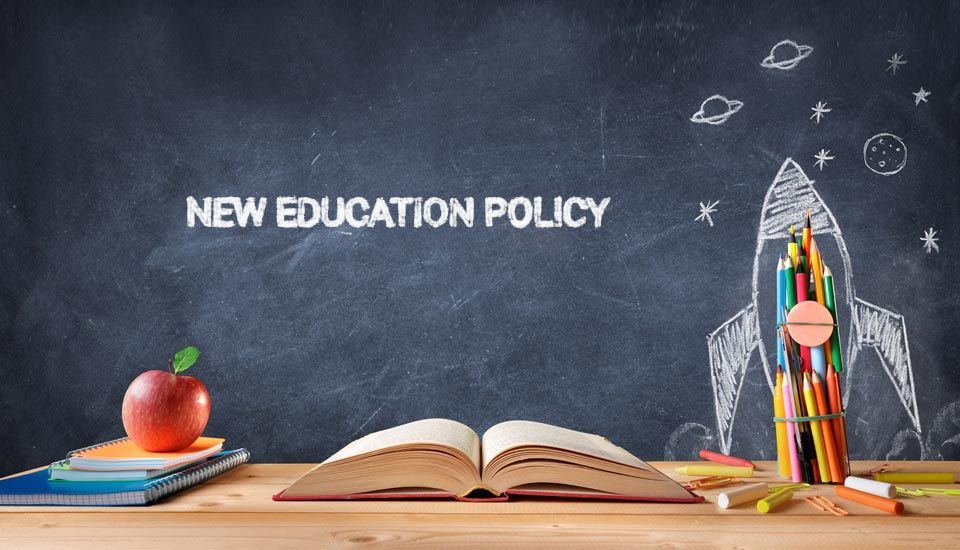
In jolt to NEP 2020, Bengal forms panel to draft its own education policy
Bengal officials say a uniform national policy would be difficult to implement as there are state-specific issues that the NEP does not address

The BJP-led Union government’s plan to have a uniform education policy across the country got another jolt with West Bengal joining Kerala and Tamil Nadu in drafting its own policy. Most of the other states and stakeholders are still fence-sitting on implementing the National Education Policy (NEP) 2020.
No state or Union territory has so far agreed to implement the new policy that promises drastic changes in the country’s education system, said sources in the Ministry of Education, renamed from the Ministry of Human Resources Development.
As for implementation efforts, a few states like Assam, Gujarat, Karnataka, Maharashtra and Meghalaya have formed task forces to study the policy and chart the roadmap for its rollout. The Association of Indian Universities, meanwhile, formed an expert committee to seek the opinion of the vice-chancellors for its implementation, sources added.
Many universities have reportedly sought more clarity in implementing the policy even as the University Grants Commission (UGC) has decided to implement the NEP 2020 from this July.
‘Gradual process’
Union Minister of State for Education Subash Sarkar, however, expressed confidence that the policy would be gradually implemented across the country. “It’s a gradual process. We have started the process of implementing the policy from this year. The aim is to put in place a holistic education system across the country by 2030,” he said.
Last week, in response to a question from Kishan Kapoor, a BJP parliamentarian from Himachal Pradesh, as to how many states have implemented the NEP announced in July 2020, Sarkar informed the Lok Sabha that the Education Ministry, other relevant ministries/departments, State/UT governments and implementing agencies under their purview have started taking initiatives towards implementation of NEP 2020.
He did not give any direct answer to the MP’s question as to how many states have implemented the policy.
“You have to understand that it is not something which can be implemented at one go. The implementation of the policy will require multiple initiatives and actions,” Sarkar told The Federal. He insisted that once implemented, the policy would bring about a sea change in the country’s education system.
Panel to submit report
The West Bengal government officials said a uniform national policy would be difficult to implement and hence a 10-member committee comprising education experts was formed on April 7. The committee will examine steps taken by states like Maharashtra and Kerala in the education sector and submit a report on forming an alternative state education policy.
The members of the panel include Columbia University professor Gayatri Chakravorty Spivak, Jadavpur University Vice-Chancellor Suranjan Das, NIT Durgapur director Anupam Basu, Maulana Abul Kalam Azad University of Technology Vice-Chancellor Saikat Maitra, and Harvard University professor Sugata Bose, among others.
“The Central government is trying to impose the NEP on the states. But we will not allow such imposition and hence we have decided to formulate our own education policy,” West Bengal Education Minister Bratya Basu told the media.
Need for state-specific policies
A member of the committee on the condition of anonymity said that the new education policy though has many “remarkable guidelines”, would be a difficult proposition for all the states to follow in toto.
“There should be state-specific policies under the larger framework of a national policy. Keeping this in mind, education has been put under the Concurrent List so that both the states and the Centre can formulate policies,” he added. The NEP 2020 would promote privatisation of education which would be disastrous for a state like West Bengal, he observed.
The state government’s committee would focus on how to improve the system by bolstering the educational institutions under the public sector, he said, adding the state’s own need will get priority.
Multilingual states
One instance of complexities of states posing a big challenge in implementing the NEP, he said, is the new policy guideline that states the medium of instruction for children of classes up to 5 will be in their mother tongue/regional language.
He said for a multilingual state like West Bengal, such instruction will be impossible to implement.
Several north-eastern states have also reportedly informed the Centre about the impossibility of imparting education in the mother tongue at the primary level as instructed under the NEP. As per the 2011 census data, Nagaland has 14 native languages and 17 dialects. Similarly, Arunachal Pradesh is home to about 26 major tribes and 100 sub-tribes who speak in 50 distinct dialects.
Assam, Manipur, Meghalaya, Mizoram and Tripura too are multi-lingual states, where imparting education to all children in their mother tongue will be an impossible task.

